Welcome to the dedicated Biodiversa+ Partners’ Bulletin page!
On this page you’ll find everything that didn’t fit into the actual bulletin sent to your e-mail.
Welcome to the dedicated Biodiversa+ Partners’ Bulletin page!
On this page you’ll find everything that didn’t fit into the actual bulletin sent to your e-mail.
The call attracted a remarkable response, with 262 pre-proposals and 108 eligible full proposals received. An independent Evaluation Committee carefully assessed and ranked these submissions. Strictly following the ranking, the BiodivMon Call Steering Committee, composed of all participating funding organisations, selected 33 research projects for funding. This decision represents a substantial financial commitment of over €46 million, including contributions from the European Commission.
These 33 funded projects demonstrate academic excellence while addressing pressing scientific and societal challenges. They foster collaboration across different disciplines and engage a broad spectrum of stakeholders.

The deadline for submitting a pre-proposal under the BiodivNbS Call on nature-based solutions was 10 November 2023. An independent Evaluation Committee composed of renowned independent experts has been set up. The results of the first step of the evaluation process will be communicated to applicants in mid-February 2024.
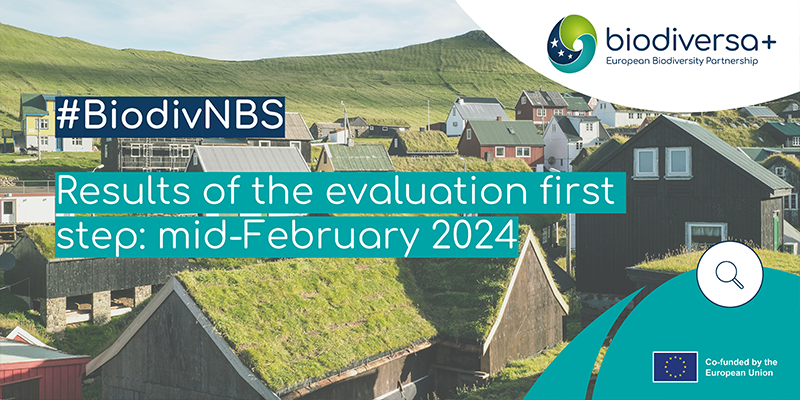
Preparations for the 4th call on Biodiversity and Societal Transformation (BiodivTransform) have started. The Call Steering Committee met in December to agree on the general outline of the call. A virtual pre-scoping workshop with external experts was held online on 9 January to identify preliminary key knowledge gaps and research priorities to be addressed in this call.
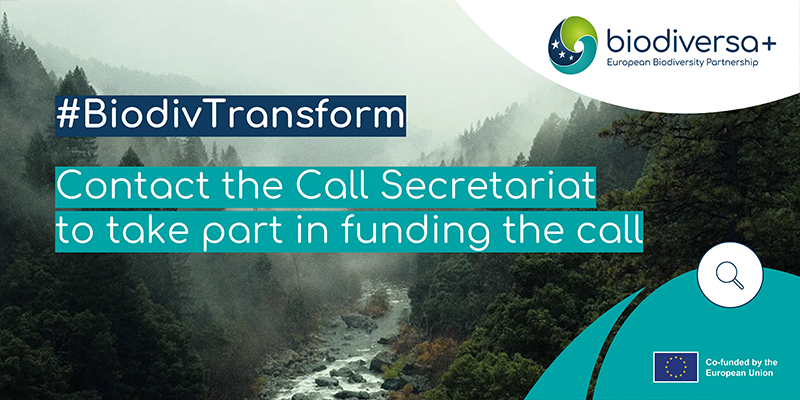
The topic of the 5th Biodiversa+ Research Call will be selected through a formal voting process in two rounds. The first round aimed to identify 3 top topics from 8 options agreed by the General Assembly: Voting was open online and closed on 24 January. During the General Assembly meeting on 14 February, partners will be asked to formally vote to select the 5th call theme.
The 5th call is expected to be launched in September 2025.
To provide a good overview of the main achievements and next steps for biodiversity monitoring, the WP2 Task Leaders invited all the active partners to an information meeting in December.
Here is the recording of the meeting (presentation slides):
Since our last Partners’ Bulletin, Biodiversa+ has released two WP2 deliverables:
A guide to harmonising biodiversity monitoring protocols, under the lead of OFB (French Biodiversity Agency, France).
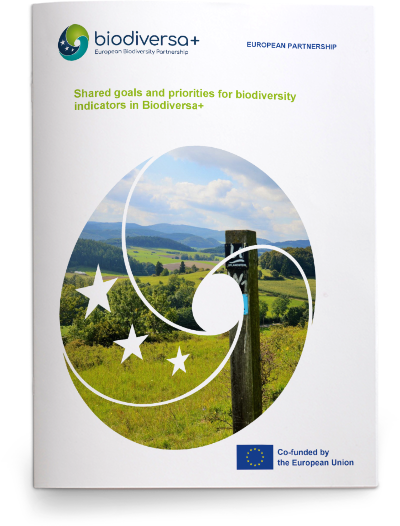
A report on shared goals and priorities for biodiversity indicators, under the lead of SEPA (Swedish Environmental Protection Agency, Sweden).
Stay tuned for more, as the first wave of pilots (on invasive alien species, soil biodiversity and governance) are all finalising their first reports which will be released very soon!
Given the increasing attention that biodiversity is receiving in business and global agendas, Biodiversa+, through IFD (Innovation Fund Denmark, Denmark), is developing a guide to help integrate biodiversity into the private and financial sectors. The guide will provide a clear overview of new policies, regulations, initiatives, partners, and metrics at the EU and global levels.
To ensure the accuracy and relevance of the guide, Biodiversa+ sought input from a wide range of stakeholders through an open consultation. The insights gained will be used to refine the guide, with a final version expected to be completed by September 2024.
Through FRB (Foundation for Biodiversity Research, France), Biodiversa+ is developing a draft white paper on how to engage the private sector in the programming and financing of research and innovation. This White paper will address challenges, identify opportunities for collaboration, and provide practical recommendations to strengthen the relationship between the private sector and the R&I ecosystem.
The development of this white paper draws upon existing deliverables as well as insights gathered through semi-structured interviews. The interviews aim to capture the initiatives, methods, and views of stakeholders on R&I funding and programming. The Enlarged Stakeholder Board plays a pivotal role in providing substantive insights.
MUR (Ministry of Universities and Research, Italy) is currently preparing a report focusing on the uptake of knowledge on NbS. The main objective is to explore effective strategies for integrating research findings and scientific knowledge into policies, practices, and decision-making related to NbS.
The report identifies three key processes:
The report, which is expected to be finalised in January this year, will be used to feed into the Guide to the European Landscape on NbS for Researchers.
In the last few months of 2023, the WP4 focused on developing policy briefs that draw on insights from Biodiversa-funded projects, starting with those in the BiodivHealth call.
An online clustering workshop with the BiodivHealth research groups was held in November. The Principal Investigators (PIs) worked together with the Biodiversa+ team and a subcontracted knowledge broker, Miri Tsalyuk, to outline the policy briefs by identifying relevant scientific findings and sharing their policy recommendations. The workshop resulted in a selection of three main themes for the policy briefs:
Discussions covered a wide range of topics, highlighting the intricate interplay between anthropogenic effects on ecosystems and health outcomes. Some examples were how anthropogenic land-use changes impact antibiotic resistance in river biofilms and microbiome diversity in rodent hosts, and how host management and ecosystem restoration can have context-dependent effects on zoonotic risk. The recommendations addressed a range of health issues, including infectious diseases, food security, and mental wellbeing.
The next step is to synthesise these scientific outputs into policy briefs, which are expected to be published by October 2024.
Following two workshops, recommendations for the “Societal Transformation” flagship were released in September, under the lead of MTECT (Ministry of Ecological Transition, France).
A mapping of Biodiversa-funded projects outcomes that can support the implementation of the GBF was initiated by Formas (Research Council for Environment, Agricultural Sciences and Spatial Planning, Sweden).
This report by FRB (Foundation for Biodiversity Research, France) concludes that Biodiversa+ programmes and projects have limited incorporation of knowledge gaps listed in IPBES reports into their documents.
To address this issue, the report proposes actionable steps and strategies to contribute to filling the identified gaps. For instance, the report recommends that programmers and funders make explicit reference to IPBES assessments and related knowledge gaps when formulating calls, and encourages applicants to also explicitly acknowledge these gaps or assessments when submitting proposals.
Biodiversa+ was present at IPBES-10 in August 2023 in its role as Technical Support Unit (TSU) for Knowledge Generation. This was an opportunity to present the results of the first three years of work as a TSU under the guidance of the IPBES Task Force on Knowledge and Data.
Together with the Task Force, the TSU developed and tested a flexible yet systematic process and guidelines to support authors in identifying knowledge gaps and presenting them in IPBES products. They also supported the identification of knowledge gaps in nexus and transformative change assessments. In addition, they developed the IPBES webpage showcasing knowledge gaps from previous assessments and established a monitoring plan to track the outcomes of IPBES’s efforts in knowledge generation.
IPBES-10 was also an opportunity for the Plenary to share its congratulations and call for the continuation of this work, in particular with an engagement strategy and the allocation of resources for a continued technical support to the MEP (Multidisciplinary Expert Panel) and Bureau in the implementation of the process developed during these first three years.
In October, the 25th meeting of the SBSTTA (Subsidiary Body on Scientific, Technical and Technological Advice) of the CBD (Convention on Biological Diversity) took place in Nairobi, Kenya. Biodiversa+ co-organised a side event with the UNEP-WCMC (UN Environment Programme World Conservation Monitoring Centre), a member of Biodiversa+’s Enlarged Stakeholder Board, to support the implementation of the KMGBF (Kunming-Montreal Global Biodiversity Framework) at the regional level.
The event featured presentations from eleven global and regional initiatives, showcasing a wide range of actions and contributions to the KMGBF. Over 40 stakeholders attended the event and explored potential collaboration between the initiatives, including the establishment of a dedicated platform to facilitate further cooperation and maximise impact.
On 6 February, Biodiversa+ will release a press kit to share key results from seven BiodivScen projects. The aim is to give visibility to our funded projects & researchers, and to place Biodiversa+ in European and global contexts, such as the EU Biodiversity Strategy 2030, EU Restoration Law, and GBF.
The communication departments of your organisations are welcome to help disseminate this package in their respective national media. Content will also be published on Biodiversa+’s social media channels on 6 February: Do not hesitate to like and/or repost them at will!
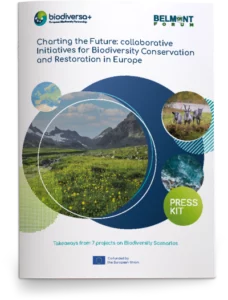
Please note: This press kit is embargoed until 6 February 10:00 CET.
Do not distribute it before then. Share it only with your communications teams, using the same instructions. For further information, please contact: communication@biodiversa.eu.
We are pleased to announce that modules 2 and 3 of the Biodiversa+ website project have entered their testing phase. These modules, which comprise the Biodiversa+ databases and an intranet, are components of the comprehensive website that will serve as a central hub for information and collaboration.
As a reminder, the project is structured around 5 modules:
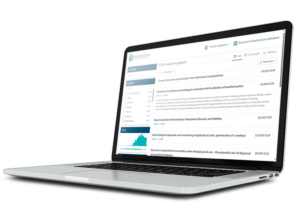
While Modules 2 and 3 are undergoing testing, development of Modules 4 and 5 is progressing steadily!
At the last meeting of the Enlarged Stakeholder Board (ESB) in Paris (April 2023), members recognised the wealth of expertise among them on a wide range of issues. They also expressed interest in using the ESB, a unique network of stakeholders supporting the Biodiversa+ objectives, as a platform to learn from each other and share their knowledge and production.
Biodiversa+ has therefore launched “ESB connections”, closed-door meetings for ESB members, scientific members of the Advisory Board, and interested Biodiversa+ Partners. These sessions are intended to provide a platform for informal discussions, allowing participants to share insights into their respective work. Participation in these sessions is optional for members.
The pilot session took place on 24 January 2024. Frederik Forsberg, Advisory Board member and representative of the ESB private sector organisations college, presented his work with SEGES Innovation on “Measuring action for biodiversity – development of a spatial platform”.
Here is the recording of the session (presentation slides):

ESB Connection, short online conferences to learn about the work of Biodiversa+ Enlarged Stakeholder Board members
On 20 February at 14:00 CET, an internal workshop will further explore the workstream on Advancing participation of civil society and the co-production of knowledge with citizens.
The workshop aims to define Biodiversa+’s concrete citizen science strategy and to look forward to the implementation of related activities. It will build on the outcomes of the exploratory workshop on citizen science in February 2023 and the contributions of the working group of partners under task 7.3. For a refresher, see the report on engagement with citizen science initiatives published in September 2023.
Ahead of the workshop, we have sent out a survey to Biodiversa-funded projects to explore their needs, challenges, and practices in citizen science.
The next Enlarged Stakeholder Board meeting will take place in Brussels during the first week of April. In consultation with the members of the Advisory Board, it has been decided to hold a back-to-back meeting of the Advisory Board on 4-5 April, in order to give members the opportunity to meet halfway through their mandate.
All Biodiversa+ partners are invited to formally express their vote before 31 January 2024.
We are pleased to announce that recruitments to strengthen the Operational Team are well on their way.
You can find an overview of the team on the dedicated page.
In a joint initiative with Water JPI (now Water4All Partnership), the BiodivRestore ERANET COFUND was launched to support research on ecosystem restoration. This initiative resulted in the successful funding of 22 research projects dedicated to the conservation and restoration of degraded ecosystems, with a specific focus on aquatic systems. The total funding amounted to 21.3 million euros.
Building upon this success, the partners involved in BiodivRestore have decided to establish a Knowledge Hub, a thematic network composed of researchers with expertise in nature restoration. This hub will actively engage with stakeholders, including policymakers and practitioners, to contribute to the integration and dissemination of knowledge, research, and technological excellence. This will ultimately help countries to develop and implement their National Restoration Plans, enabling them to meet the targets set out in the EU Biodiversity Strategy 2030 and the Global Biodiversity Framework.
The BiodivRestore Action (2019-2025) is set to launch a call for interest for experts to join its task forces by early February. Throughout February to April, experts will be selected and invited to participate in the Knowledge Hub’s launch event, which will be held in conjunction with the Biodiversa+ dialogue events on restoration scheduled for May 2024.